
Giovanni Antonio Canal Canaletto Painting Reproductions 13 of 13
1697-1768
Italian Rococo Painter
311 Canaletto Paintings
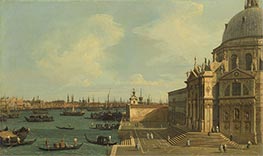
Venice: Santa Maria della Salute n.d.
Oil Painting
$5349
$5349
Canvas Print
$65.95
$65.95
SKU: CAN-17294
Giovanni Antonio Canal Canaletto
Original Size: 47.6 x 79.4 cm
Metropolitan Museum of Art, New York, USA
Giovanni Antonio Canal Canaletto
Original Size: 47.6 x 79.4 cm
Metropolitan Museum of Art, New York, USA
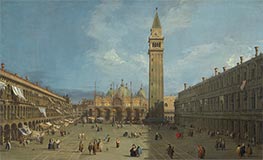
Piazza San Marco c.1727/29
Oil Painting
$9836
$9836
Canvas Print
$65.95
$65.95
SKU: CAN-17334
Giovanni Antonio Canal Canaletto
Original Size: 68.6 x 112.4 cm
Metropolitan Museum of Art, New York, USA
Giovanni Antonio Canal Canaletto
Original Size: 68.6 x 112.4 cm
Metropolitan Museum of Art, New York, USA
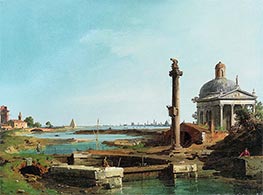
A Lock, a Column, and a Church beside a Lagoon c.1740/45
Oil Painting
$3066
$3066
Canvas Print
$73.96
$73.96
SKU: CAN-17335
Giovanni Antonio Canal Canaletto
Original Size: 50.8 x 67.6 cm
Metropolitan Museum of Art, New York, USA
Giovanni Antonio Canal Canaletto
Original Size: 50.8 x 67.6 cm
Metropolitan Museum of Art, New York, USA
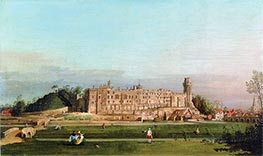
Warwick Castle 1748
Oil Painting
$3619
$3619
Canvas Print
$65.95
$65.95
SKU: CAN-17336
Giovanni Antonio Canal Canaletto
Original Size: 43 x 71.8 cm
Metropolitan Museum of Art, New York, USA
Giovanni Antonio Canal Canaletto
Original Size: 43 x 71.8 cm
Metropolitan Museum of Art, New York, USA
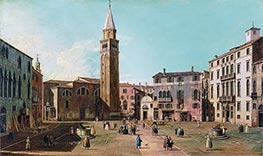
Campo Sant'Angelo, Venice c.1730/40
Oil Painting
$4757
$4757
Canvas Print
$65.95
$65.95
SKU: CAN-17337
Giovanni Antonio Canal Canaletto
Original Size: 46.7 x 77.5 cm
Metropolitan Museum of Art, New York, USA
Giovanni Antonio Canal Canaletto
Original Size: 46.7 x 77.5 cm
Metropolitan Museum of Art, New York, USA
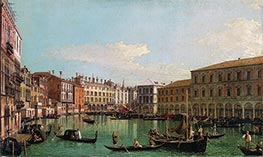
The Grand Canal, Venice, Looking South toward the ... c.1730/40
Oil Painting
$5321
$5321
Canvas Print
$65.95
$65.95
SKU: CAN-17338
Giovanni Antonio Canal Canaletto
Original Size: 46.4 x 77.5 cm
Metropolitan Museum of Art, New York, USA
Giovanni Antonio Canal Canaletto
Original Size: 46.4 x 77.5 cm
Metropolitan Museum of Art, New York, USA
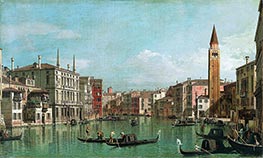
The Grand Canal, Venice, Looking Southeast, with ... c.1730/40
Oil Painting
$5178
$5178
Canvas Print
$65.95
$65.95
SKU: CAN-17339
Giovanni Antonio Canal Canaletto
Original Size: 47 x 77.8 cm
Metropolitan Museum of Art, New York, USA
Giovanni Antonio Canal Canaletto
Original Size: 47 x 77.8 cm
Metropolitan Museum of Art, New York, USA
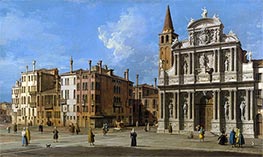
Campo Santa Maria Zobenigo, Venice c.1730/40
Oil Painting
$5002
$5002
Canvas Print
$65.95
$65.95
SKU: CAN-17340
Giovanni Antonio Canal Canaletto
Original Size: 47 x 78 cm
Metropolitan Museum of Art, New York, USA
Giovanni Antonio Canal Canaletto
Original Size: 47 x 78 cm
Metropolitan Museum of Art, New York, USA
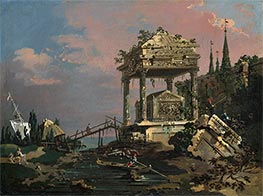
Imaginary View with a Tomb by the Lagoon c.1740/45
Oil Painting
$2035
$2035
Canvas Print
$65.95
$65.95
SKU: CAN-17341
Giovanni Antonio Canal Canaletto
Original Size: 30.2 x 39.4 cm
Metropolitan Museum of Art, New York, USA
Giovanni Antonio Canal Canaletto
Original Size: 30.2 x 39.4 cm
Metropolitan Museum of Art, New York, USA
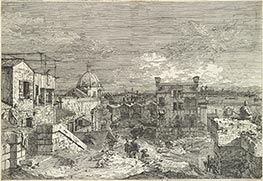
Imaginary View of Venice 1741
Paper Art Print
$62.44
$62.44
SKU: CAN-17342
Giovanni Antonio Canal Canaletto
Original Size: 30 x 43.7 cm
Metropolitan Museum of Art, New York, USA
Giovanni Antonio Canal Canaletto
Original Size: 30 x 43.7 cm
Metropolitan Museum of Art, New York, USA
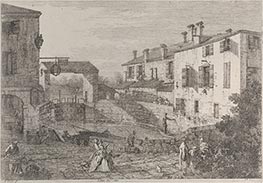
Le porte del Dolo c1735/46
Paper Art Print
$62.44
$62.44
SKU: CAN-17343
Giovanni Antonio Canal Canaletto
Original Size: 32 x 45.5 cm
Metropolitan Museum of Art, New York, USA
Giovanni Antonio Canal Canaletto
Original Size: 32 x 45.5 cm
Metropolitan Museum of Art, New York, USA
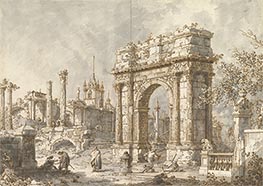
Capriccio with a Roman Triumphal Arch c.1720/30
Paper Art Print
$64.20
$64.20
SKU: CAN-17344
Giovanni Antonio Canal Canaletto
Original Size: 38 x 54 cm
Metropolitan Museum of Art, New York, USA
Giovanni Antonio Canal Canaletto
Original Size: 38 x 54 cm
Metropolitan Museum of Art, New York, USA
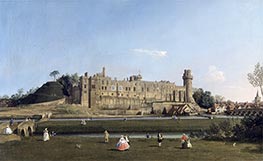
Warwick Castle c.1748/1749
Oil Painting
$4472
$4472
Canvas Print
$65.95
$65.95
SKU: CAN-17531
Giovanni Antonio Canal Canaletto
Original Size: 72.4 x 120 cm
Yale Center for British Art, Connecticut, USA
Giovanni Antonio Canal Canaletto
Original Size: 72.4 x 120 cm
Yale Center for British Art, Connecticut, USA

Old Walton Bridge 1755
Oil Painting
$5628
$5628
Canvas Print
$65.95
$65.95
SKU: CAN-17532
Giovanni Antonio Canal Canaletto
Original Size: 46 x 122.2 cm
Yale Center for British Art, Connecticut, USA
Giovanni Antonio Canal Canaletto
Original Size: 46 x 122.2 cm
Yale Center for British Art, Connecticut, USA
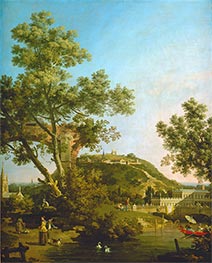
English Landscape Capriccio with a Palace c.1754
Oil Painting
$3682
$3682
Canvas Print
$80.32
$80.32
SKU: CAN-17729
Giovanni Antonio Canal Canaletto
Original Size: 134 x 108.8 cm
National Gallery of Art, Washington, USA
Giovanni Antonio Canal Canaletto
Original Size: 134 x 108.8 cm
National Gallery of Art, Washington, USA
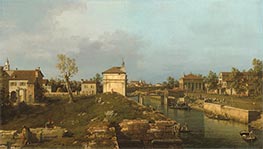
The Porta Portello, Padua c.1741/42
Oil Painting
$3726
$3726
Canvas Print
$65.95
$65.95
SKU: CAN-17730
Giovanni Antonio Canal Canaletto
Original Size: 62 x 109 cm
National Gallery of Art, Washington, USA
Giovanni Antonio Canal Canaletto
Original Size: 62 x 109 cm
National Gallery of Art, Washington, USA
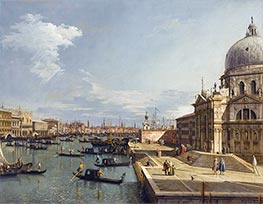
Entrance to the Grand Canal and Santa Maria della ... c.1735/40
Oil Painting
$5042
$5042
Canvas Print
$77.24
$77.24
SKU: CAN-17873
Giovanni Antonio Canal Canaletto
Original Size: 119 x 153 cm
Louvre Museum, Paris, France
Giovanni Antonio Canal Canaletto
Original Size: 119 x 153 cm
Louvre Museum, Paris, France
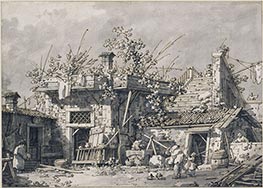
Capriccio with Houses on a Staircase c.1760/65
Paper Art Print
$62.44
$62.44
SKU: CAN-18798
Giovanni Antonio Canal Canaletto
Original Size: 25.1 x 35.4 cm
Gemaldegalerie, Berlin, Germany
Giovanni Antonio Canal Canaletto
Original Size: 25.1 x 35.4 cm
Gemaldegalerie, Berlin, Germany
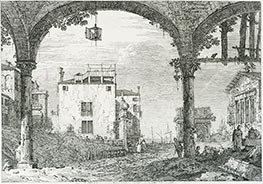
The Portico with the Lantern c.1740/42
Paper Art Print
$62.44
$62.44
SKU: CAN-18799
Giovanni Antonio Canal Canaletto
Original Size: 29.9 x 42.6 cm
Gemaldegalerie, Berlin, Germany
Giovanni Antonio Canal Canaletto
Original Size: 29.9 x 42.6 cm
Gemaldegalerie, Berlin, Germany
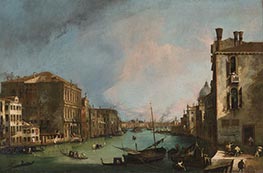
The Grand Canal in Venice with the Rialto Bridge 1724
Oil Painting
$3778
$3778
Canvas Print
$65.95
$65.95
SKU: CAN-18855
Giovanni Antonio Canal Canaletto
Original Size: 65.5 x 97.5 cm
Gemaldegalerie Alte Meister, Dresden, Germany
Giovanni Antonio Canal Canaletto
Original Size: 65.5 x 97.5 cm
Gemaldegalerie Alte Meister, Dresden, Germany
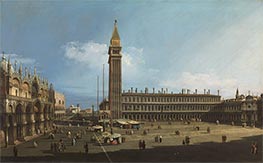
Piazza San Marco, Venice c.1732/33
Oil Painting
$5221
$5221
Canvas Print
$65.95
$65.95
SKU: CAN-19006
Giovanni Antonio Canal Canaletto
Original Size: 61 x 96.5 cm
Fuji Art Museum, Tokyo, Japan
Giovanni Antonio Canal Canaletto
Original Size: 61 x 96.5 cm
Fuji Art Museum, Tokyo, Japan
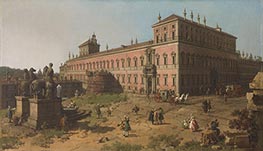
View of the Palazzo del Quirinale, Rome c.1750/51
Oil Painting
$3348
$3348
Canvas Print
$65.95
$65.95
SKU: CAN-19018
Giovanni Antonio Canal Canaletto
Original Size: 39.5 x 68.5 cm
Fuji Art Museum, Tokyo, Japan
Giovanni Antonio Canal Canaletto
Original Size: 39.5 x 68.5 cm
Fuji Art Museum, Tokyo, Japan

The Bucintoro at the pier on Ascension Day c.1740
Oil Painting
$8166
$8166
Canvas Print
$73.41
$73.41
SKU: CAN-19914
Giovanni Antonio Canal Canaletto
Original Size: 120.5 x 157 cm
Pinacoteca Agnelli, Torino, Italy
Giovanni Antonio Canal Canaletto
Original Size: 120.5 x 157 cm
Pinacoteca Agnelli, Torino, Italy